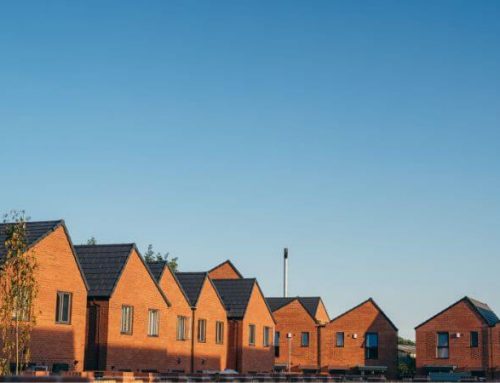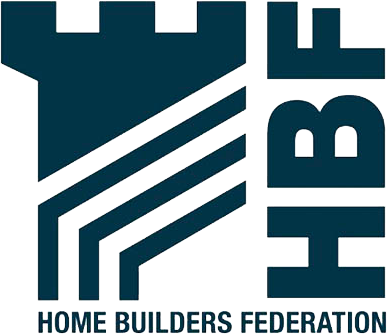The Bank of England has announced an increase in interest rates by 0.25 percentage points, pushing the benchmark rate to 4.25% up from 4%.
This follows an unexpected rise in the rate of inflation yesterday, which saw the rate rise from 10.1% in January to 10.4% in February.
Previously, the interest rate was already at its highest level for 14 years and the latest rise marks the 11th in a row. Mortgage holders will once again feel the pinch, with an estimated 1.6 million people on tracker and variable rate deals that will see an immediate increase in monthly payments.
The 0.25% increase means that homeowners on a typical tracker mortgage would pay around £24 more a month, and those on standard variable rate mortgages face around a £15 increase.
Here’s how the interest rate rise was received across the housebuilding industry:
David Hannah, group chairman of Cornerstone Tax, said: “In the short term, today’s announcement from the Bank of England to increase interest rates will have a detrimental impact on those who are currently on variable mortgages, and it may lead to people running into genuine financial difficulty. It is also set to affect first-time buyers who may now be unable to make a first step onto the housing ladder due to unaffordable mortgage rates. This will also be cause for concern for those who are coming to the end of a fixed-term deal as their repayments will also increase.”
“Today’s announcement will have a knock-on effect on the rental market too – it has already been suffering from a lack of supply, and now, with a growing number of would-be buyers in need of a place to live, this is going to be exacerbated further. The result of this is that rental prices and competition will likely increase at a time when people are already struggling. With all of this said, my outlook for the second half of this year is much more positive and I think mortgage rates will fall alongside inflation which should bring affordability back to more normal levels.”
Head of corporate partnerships at Sirius Property Finance, Kimberley Gates, commented: “An eleventh consecutive interest rate hike will come as a blow to the nation’s homebuyers who will now see the cost of securing a mortgage climb that little bit higher at a time when they are already struggling with the wider cost of living.”
“The silver lining is that today’s increase is the lowest since August of last year which suggests we could be over the hump. However, we expect that interest rates will continue to rise before they fall, with the general consensus being that they will peak at 5%.”
Jonathan Samuels, CEO of Octane Capital, said: “Despite the global banking wobble, the message from the Bank of England is clear – they aren’t worried and their sights remain firmly set on bringing down inflation.”
“This seems like the right call given that UK inflation is persistently higher than other advanced economies in the EU and the US. However, in seeking to reduce inflation through higher rates, we can expect downward pressure on house prices to filter through as homeowners see their fixed rates end and they have to take out more expensive mortgages.”
Dominic Agace, chief executive of estate agents, Winkworth, said: “We are now near the peak of the tightening cycle and with a strong appetite from lenders remaining, mortgages now appear to have settled in for the long term at around 4%. At this level, with a strong employment market and improving economic sentiment, we see a more benign year ahead than expected, with prices drifting down on average by 5%, as affordability feeds through differently in different areas, increasing price performance disparity driven by location but with a soft landing in sight.”
Adam Oldfield, chief revenue officer at Phoebus Software, said: “The will they, won’t they of the past few days has now been settled and for most it’s not the decision they were hoping for. Unfortunately, there are many factors weighing heavily on the global economy and recent events in the banking sector have added further to the turmoil. The unexpected rise in inflation announced yesterday, along with the half a per cent rate rise by the Fed, no doubt gave the committee grist to the mill.”
“There is the suggestion that the rise in inflation last month was a temporary blip, and we should start to see the numbers coming down again soon. If this is the case, it’s hard to see that the Bank of England will have any cause to put the base rate up again in its next meeting. The problem is that we were just starting to see the housing market moving again, so the news of another increase could well give people further pause for thought.”
“The only light is that we’ve seen lenders reducing rates in the last week, so perhaps they may not be as quick to put rates up if current swap rates are baked in. Nevertheless, for those on SVRs or trackers it’s a worrying time and lenders, I’m sure, will be getting their houses in order to ensure exposed borrowers get the support they need.”
Marcus Dixon, director of UK residential research at JLL, commented: “A further rate rise at an MPC meeting has become almost a foregone conclusion, with rates rising 10 times since December 2021 and the last meeting in February. But views on the outcome of the March meeting were mixed. On one hand, the uncertainty surrounding the collapse of the Silicon Valley Bank and the takeover of Credit Suisse by UBS, alongside more encouraging news on the outlook for inflation from the OBR suggested the committee may stick. But yesterday’s double-digit inflation figures, showing an uptick in CPI in February, increased the odds of a rate rise.”
“Even with today’s 25 basis point rise, we expect this will signal a topping out (or near topping out) of rates. This is in line with our expectations on rates, with JLL forecasting this will mean house prices fall by 6% nationally in 2023, with the market starting to see annual growth return in the latter part of 2024.”
Nick Leeming, chairman of Jackson-Stops, said: “Hot off the heels from a surprise rise in inflation for February, the latest decisive action in a marathon of measures by the Bank of England to bring inflation down by the end of the year should have the long-term effect of calming the markets. This could, however, be a fly in the ointment for housing, as mortgage borrowers watch intently to understand the effect this may have on current deals.”
“In the medium term, as with an ever-evolving economic picture, if inflation is successfully scaled back, the overall lending market may paint a more favourable picture for borrowers with further stability on the horizon.”
“Homeownership continues to sit at the top of the table for savers looking to beat inflation and make their money work harder for them. No cash savings rates currently available can beat inflation. By comparison from January 2022 to January 2023, the average UK house price rose by £17,000, showing just how reliable longer-term capital growth in bricks and mortar can be.”
Source: Show House News












